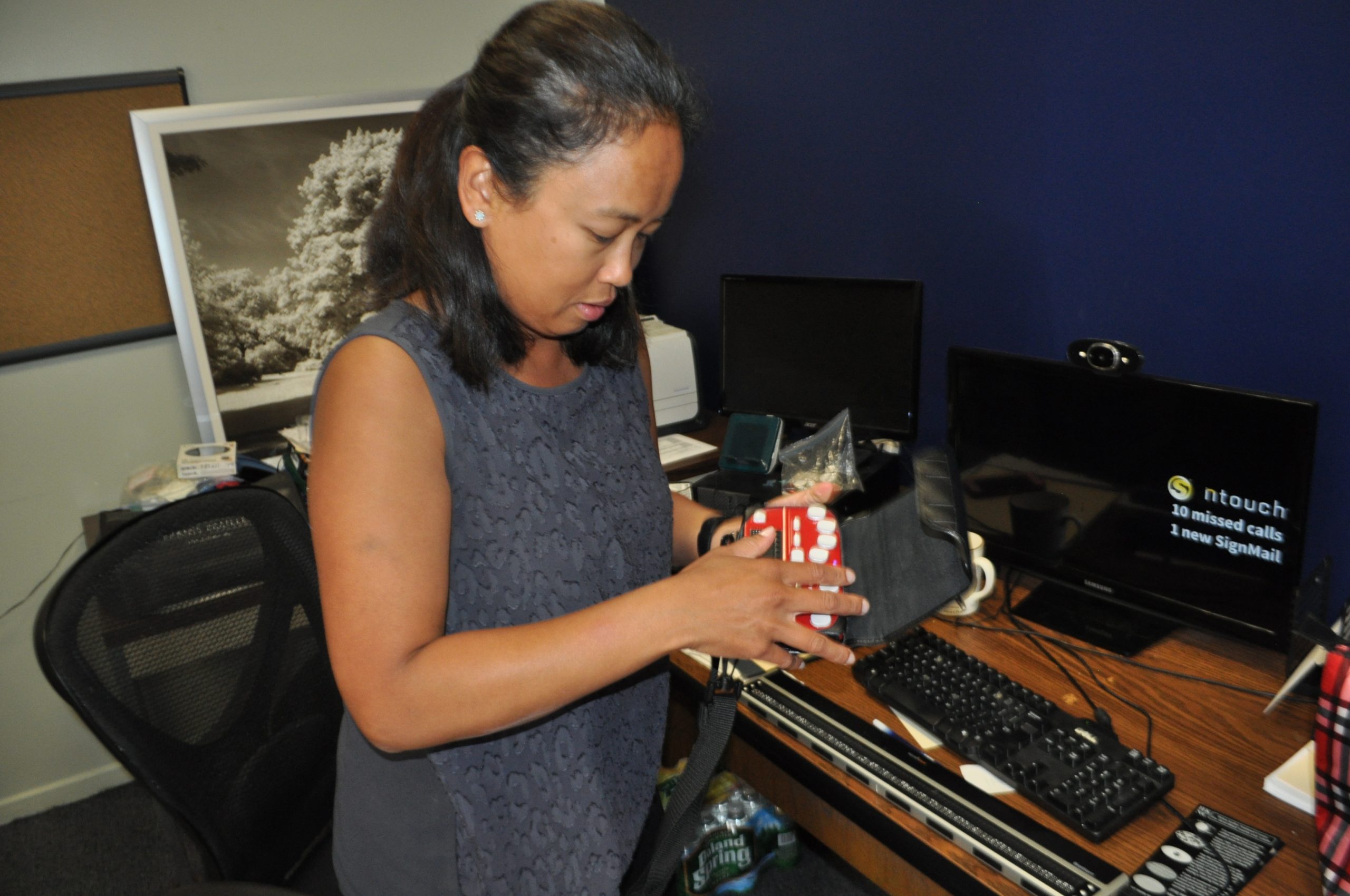“Alone we can do so little, together we can do so much,” said Helen Keller, the renowned deaf-blind activist who advocated for people with disabilities. That mission is carried on by the Helen Keller National Center in Port Washington, which last week held its annual national advocacy campaign “Deaf-Blind Awareness Week.”
Sue Ruzenski, the executive director of the center, said that the goal for the week is twofold: to celebrate deaf-blind individuals and to draw particular attention to the strength and leadership of the younger generation.
Established by an act of Congress in 1967 — a year before Keller’s death — the center was originally based in a spice factory in New Hyde Park, according to Executive Director Sue Ruzenski. In 1976, the center was moved into a new facility in Sands Point, where it has been based ever since.
“Deaf-Blind Awareness Week” has been held every year since 1984, when President Ronald Reagan issued a proclamation that the last week of June would be dedicated to the issue. Ruzenski said that the week has a different theme each year and 2018’s focused on investing in deaf-blind youth.
“This year’s theme … recognizes and celebrates the commitment among today’s young deaf-blind men and women to effect lasting, positive change,” she said.
Like Helen Keller, her namesake organization does not believe that becoming deaf-blind means people can no longer participate in society. The center trains deaf-blind adults for jobs throughout the North Shore, an effort overseen by Kathy Mezack.
Alper’s Hardware in Port Washington, the Town of North Hempstead offices and Roslyn Claremont Hotel are among the 75 business that partner with the center.
“So many folks in the community, we’re very fortunate that they’re opening their doors and giving people a chance,” said Ruzenski. “They can do it. They just need the opportunity.”
Ruzenski and Mezack have been with the organization for several decades. Mezack said she used a typewriter when she first started at the center. Both said advances in technology have been a tremendous help. Apps for iPhones have aided education, and special keyboards with Braille allow students to read words from a computer or smartphone.
“It has transformed a person’s ability to be independent and get information,” Ruzenski said.
Of course, there is more than just job training. Students at the center learn how to use public transportation to reach their jobs and how to cook for themselves.
“The youth come here … and we learn cooking techniques through touch,” said Maricar Marquez, the deaf-blind supervisor of the independent living department who communicated through sign language. “In the past, I’ve taught students how to cook lasagna, and I really enjoyed that.”
But funding remains a challenge. The new technology is expensive — the Braille keyboards cost about $6,000 each — and getting deaf-blind persons to Sands Point is often difficult.
By her estimation, there are about 2.4 million deaf-blind people in the United States, although the number is difficult to pin down since cases in seniors often go unreported. That is more than the Sands Point facility can handle, but many of those people do not have close access to a place like the Helen Keller National Center. And in other parts of the world, Ruzenski notes, deaf-blind people have even fewer resources.
She said that during the awareness week she wanted to show that the deaf-blind are worth the investment.
“They really do want to work … they’re not going to come in late, they want to excel,” she said. “We want them to have opportunities like you or me to live a fulfilling life.”
Reach reporter Luke Torrance by email at ltorrance@theislandnow.com, by phone at 516-307-1045, ext. 214, or follow him on Twitter @LukeATorrance.



